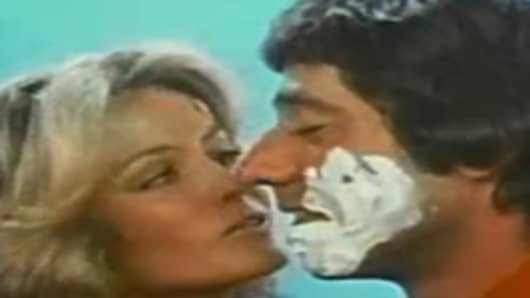If you are one of those people who dismiss all the hype around Super Bowl advertising, I have one word for you: “Whassup?”
Super Bowl adsaren't just noise between the action in the game, they are an important part of American culture, and Wordnik.com's Erin McKean has proof. She's gathered a list of words that have entered our lexicon by way of the Super Bowl ads of the past.
Here's a sample of my favorites:
So the concept of “herding cats,” may not have originated with Electronic Data Systems, but the company, which is now a unit of Hewlett-Packard certainly put the most memorable visual behind the concept of cat herdersin its Super Bowl ad in 2000.
According to McKean, humor is an easy way to get complicated messages across to large audience.
What was smart about the “Cat Herding” commercial was that it took terminology that was popular in the technology industry during in the mid-1980s, and made it funny and accessible to everyone. It also was well-suited to the goal of the ad, which was more about creating “warm, friendly, happy feelings” about a tech company, than about selling a specific product, McKean said.
Drinkability: One trend among these Super Bowl ad buzzwords is that they often take pieces of existing words and put them together like Lego blocks to form new concepts, according to McKean.
Several on McKean's list fall into this category, including “drinkability” from a 2009 Budweiser ad called “Meeting.”
The ad campaign was used to poke fun at wine tasting and the formal terminology that goes along with these events.
Another example is “fandemonium,” a word that combines “fan” and “pandemonium.” The word was used in the 2009 Monster.comcommercial, "Director of Fandemonium."
Milk-a-holic: E-Trade Financial was sued by actress Lindsay Lohan after its “Jealous Girlfriend” ad aired in 2010. A baby in the commercial says, “And that milk-a-holic Lindsay wasn't over?”
Lohan claimed that baby Lindsay referred to her and her reported problems with substance abuse.
The term milk-a-holic, a blend of milk and alcoholic, was used to mean someone who is addicted to milk. According to McKean, the “a-holic” suffix has come to be used for many addictions. (Chocoholic and shopaholic to name a few.)
Connectile Dysfunction: The words also can make a statement about pop culture at the time. In 2007, Sprint Nextel aired “Connectile Dysfunction,” a concept that plays on the word “erectile dysfunction.”
The tone of the ad mimicked many of the commercials pharmaceutical companies such as Pfizer were airing to promote Viagra and other treatments for erectile dysfunction.
McKean said the commercial showed that Americans had moved beyond the first barrier of being able to talk about the condition of erectile dysfunction, and past the point where people thought about it, to arrive at a point where consumers were comfortable joking about the condition.
Wardrobe Malfunction: OK, so this technically wasn't part of any Super Bowl commercial, but it did occur between the main action in the game, and it did go on to be used in at least one Budweiser ad.
The word was coined by Justin Timberlake's management to describe the incident that occurred during the 2004 Super Bowl halftime show, in which Janet Jackson's breast was accidentally shown.
McKean points out that the term is constructed in such as way as to remove any responsibility from any individual by implying that it was a mechanical rather than a human error. She said the word solved the problem of how people could talk about the incident, by providing a short-hand to describe the event.
“Everyone reacted to it because it was so blatantly euphemistic,” McKean said.
And, yes, “Whassup!”
Budweiser aired several different iterations of this ad campaign over the years, cementing the catchphrase firmly into pop culture. McKean said the term has come to be known as a shorthand way of indicating you are talking with people you have a good time with and are comfortable with enough to act silly.
The following version, “Wassup” aired during the 2006 Super Bowl.
Questions? Comments? Email us at consumernation@cnbc.com. Follow Christina Cheddar Berk on Twitter @ccheddarberk.



